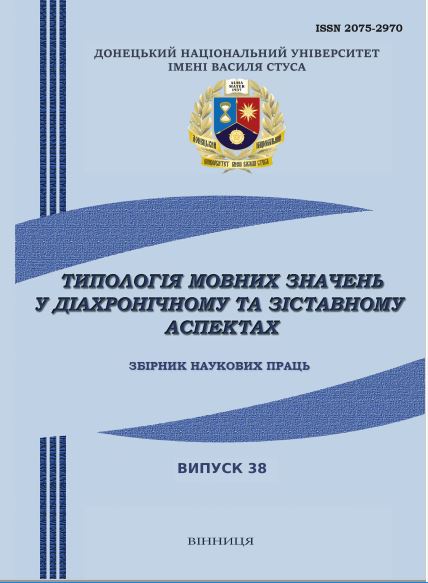Functional and Pragmatic Manifestations of Tact Discourse in the English-speaking Societies, Ukrainian-speaking and Polish-speaking Linguocultural Spaces.
DOI:
https://doi.org/10.31558/2075-2970.2019.38.1Keywords:
linguocultural space, interpersonal interaction, intercultural communication, discourse, negative politeness, positive politeness, tact maximAbstract
The paper examines the functional and pragmatic manifestations of the politeness category, in particular within the tact discourse, in order to indicate the ethno-cultural originality of the investigated phenomenon in different linguistic spaces.
The conducted study shows the communicative sovereignty of British, American, Polish linguistic and cultural spaces. The representatives of English-speaking and Polish-speaking societies have communicative sovereignty, according to which, on the one hand, the concept of privacy prevails in personal conversation, on the other hand, the intrusion into the interlocutor’s personal sphere occurs indirectly in accordance with clear discourse etiquette rules. It was noted that the strategy to avoid potentially dangerous personal topics follows the rules of negative politeness.
The Ukrainian linguoculture is characterized by restricted communicative sovereignty, which allows the interference into the interlocutor’s privacy to carry on frank conversations, to express remarks unreservedly, and to give personal information in accordance with the rules of positive politeness.
The conducted research has demonstrated the tendency of the Ukrainian society to explicit forms of interpersonal interaction, while the members of other linguistic cultures under study are inclined to the implicit means of interpersonal interaction.
The study of the functional and pragmatic manifestations of the discourse of tact in English-speaking, Ukrainian-speaking, and Polish-speaking linguocultural spaces within intercultural terms is important for systematizing and explaining differences in the communicative behaviour of the representatives of different linguocultures, for greater effectiveness of intercultural interaction considering the globalization and integration of different linguocultures.
References
Bahtin, M. (1986). Estetika slovesnogo tvorchestva. M. : Iskusstvo.
Hnatiuk, L. (2017). Funktsional’no-kommunikativnaya tipolohiya ambivalentnosti kak prahmaticheskoi stratehii ironii (na fakticheskom materiale anhliiskoho yazyka). Journal of Linguistics (Scientific Journal for the Theory of Language). Elsevier–Scopus–De Gruyter (Open Access). Vol. 68. 17–37.
Hnatiuk, L. (2013). Tekhnologii mizpersonalnogo spilkuvannia u mizkulturniy vzayemodii (The Technology of Interpersonal Communication in the Intercultural Interaction). Donetsk : „Knowledge”.
Leech, G. (1983) Principles of Pragmatics. London–New York.

